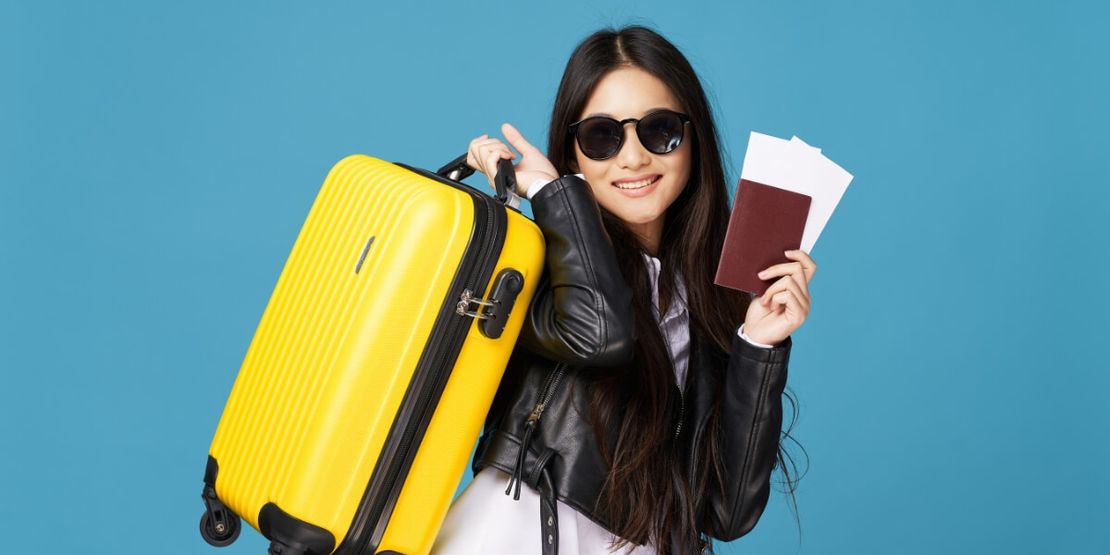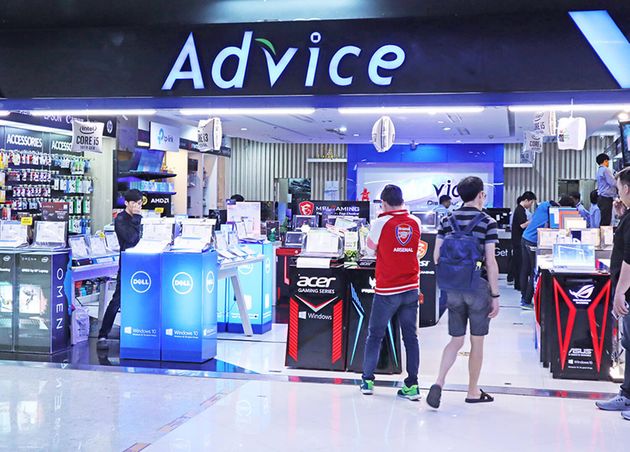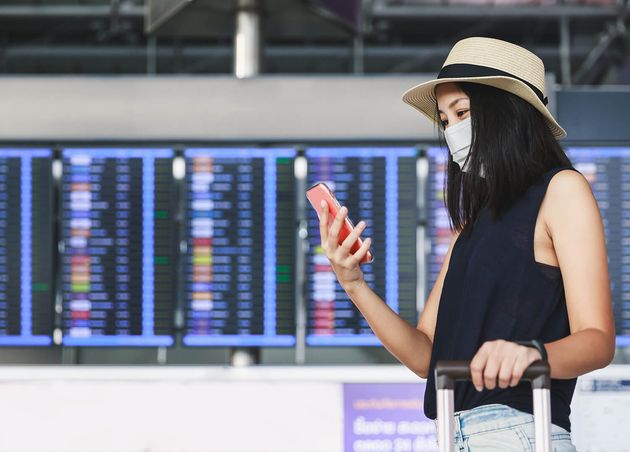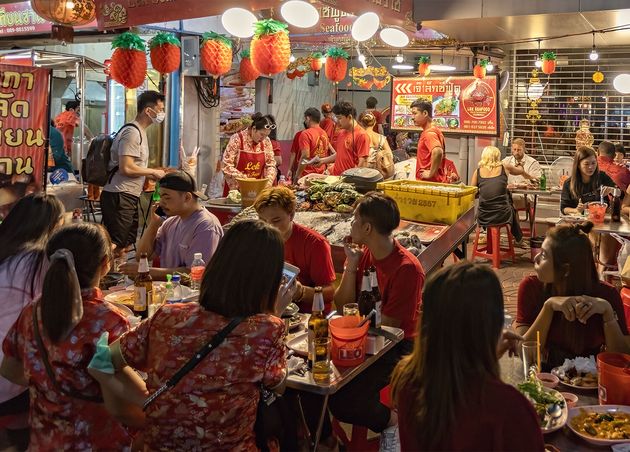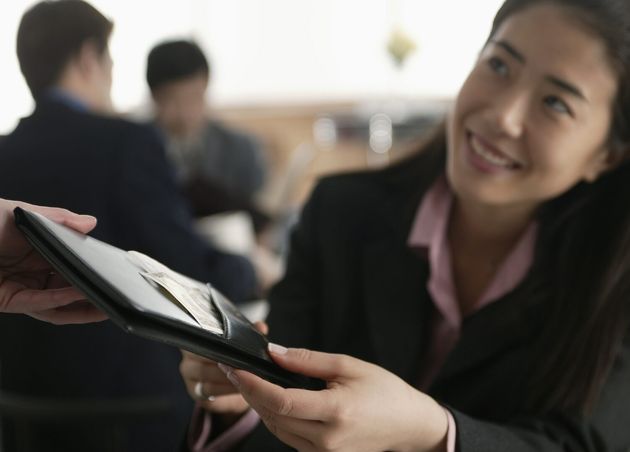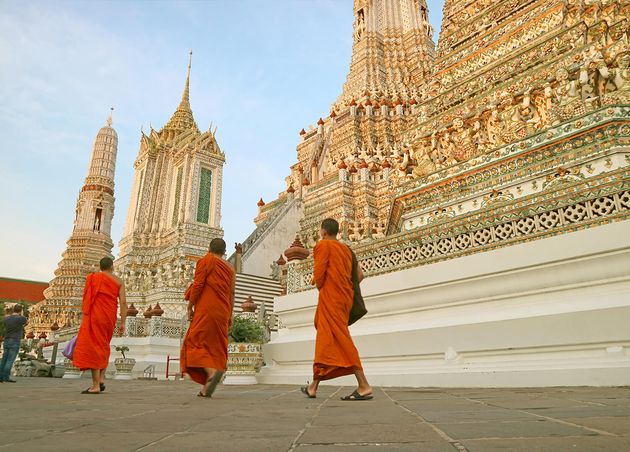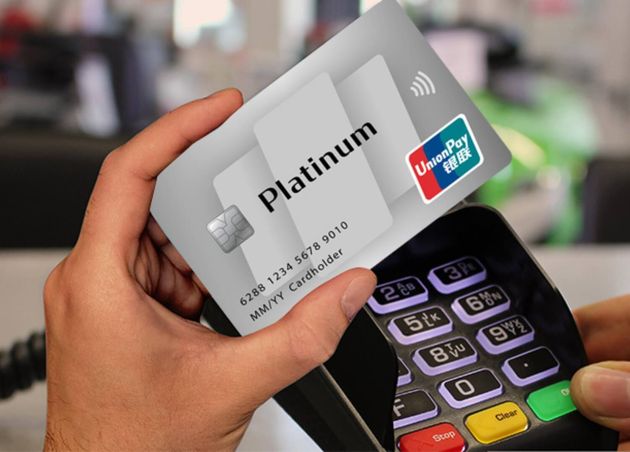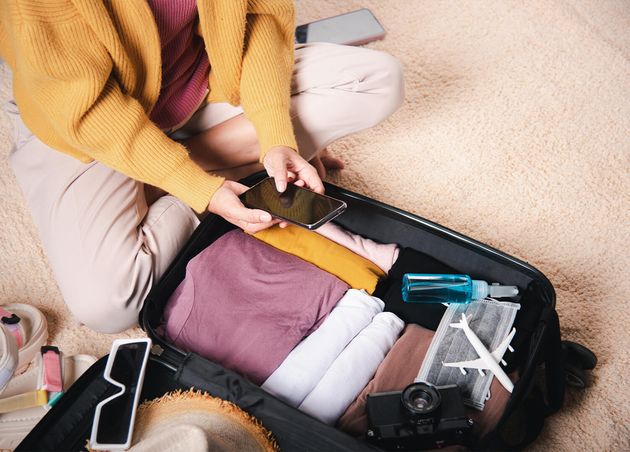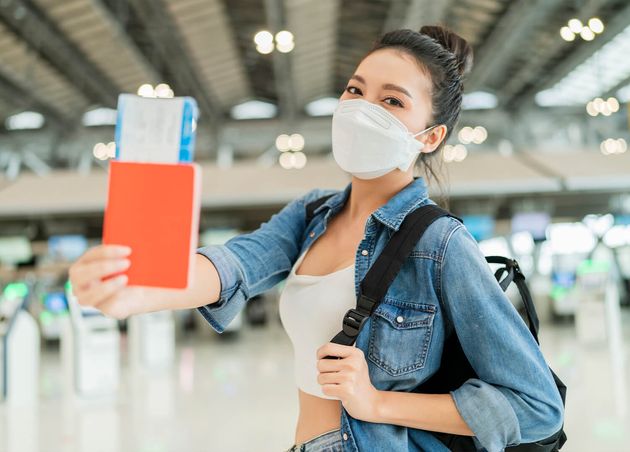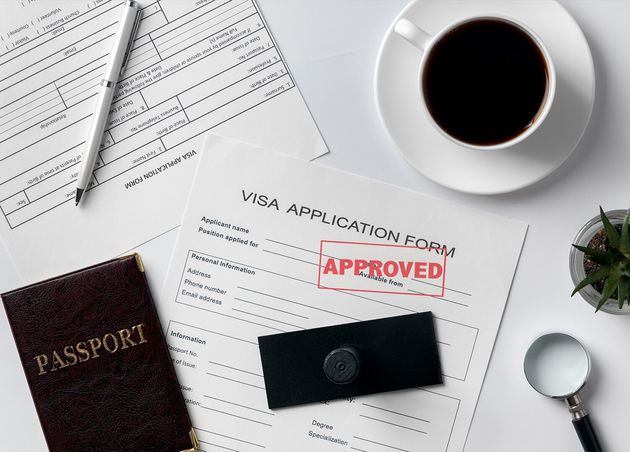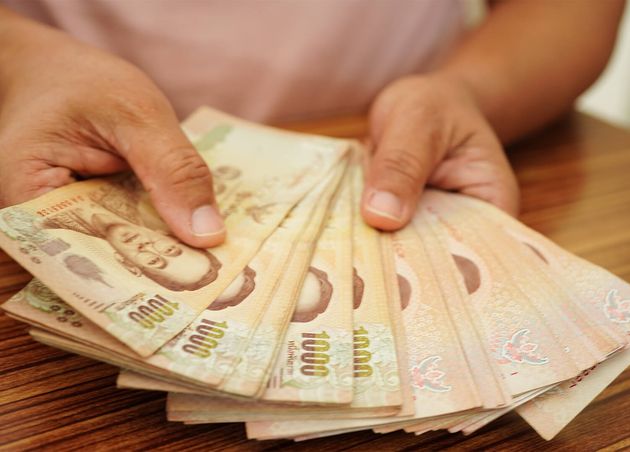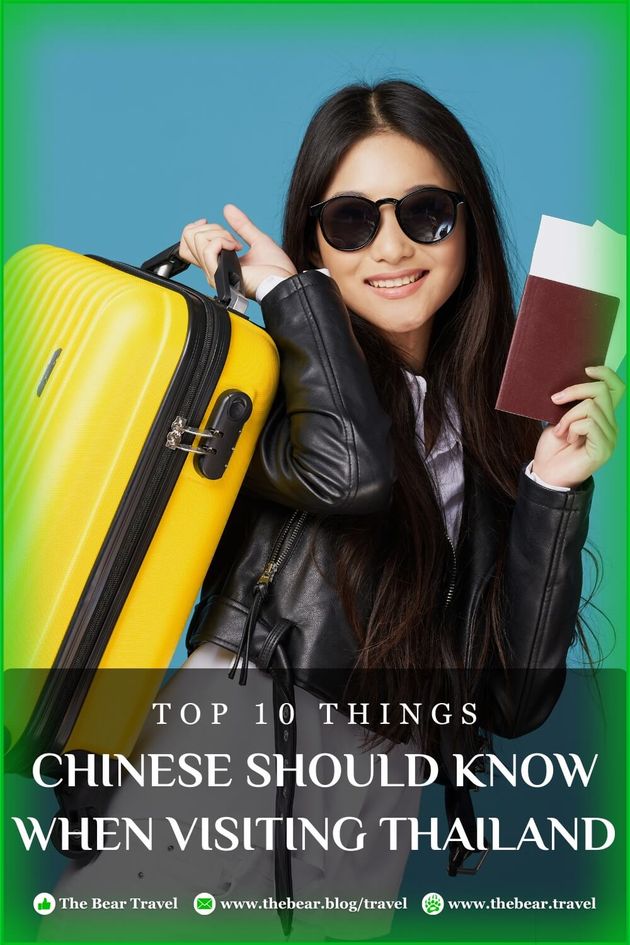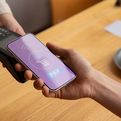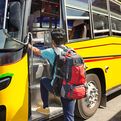Top 10 Things Chinese Should Know When Visiting Thailand
Are you a Chinese traveler looking forward to visiting Thailand? Recently, the growth data for inbound tourists indicates that the number of Chinese tourists traveling to Thailand has grown significantly. So, we will tell you about the top 10 things you should know before traveling to Thailand to make your holiday trip memorable.
Sometimes, you don’t have to travel far to enjoy the holiday of your dreams, which is undoubtedly true for Chinese travelers. International travel to faraway continents and long-haul flights may still seem a bit unnerving for some, and that’s why Thailand is a perfect choice for Chinese travelers who are yearning for a change of scenery right now.
A short 3 hours and 20 minutes flight from any significant China airport will bring you to a tropical paradise. It will be surrounded by golden beaches, misty mountains, breathtaking waterfalls, mouth-watering food, and the hospitality of people you'll absolutely meet.
So, here are the top 10 things you should know when visiting Thailand as a Chinese traveler. So, all these things will help you learn more about China and ease your journey, especially if you're traveling to Thailand soon.
Essential Travel Tips for Chinese Visitors to Thailand
Planning a trip to Thailand as a Chinese traveler? Prepare to immerse yourself in the vibrant culture, breathtaking landscapes, and welcoming hospitality of this tropical paradise. From understanding tax refund procedures to navigating local customs, these tips are tailored to enhance your travel experience. Explore the best ways to stay connected, manage finances, and enjoy festivals like Chinese New Year in Thailand. By equipping yourself with this knowledge, you'll make the most of your time in Thailand and create unforgettable memories.
#10 Tax Refund Procedure
Tourists who buy goods in Thailand can ask for a 7% VAT refund when they return to China. After purchasing a product with the "Vat Refund for Tourists" logo and spending 2,000 Thai Baht at the same store on the same day, you can fill in a tourist tax refund application form with your passport on the day of shopping and print the original tax certificate.
According to the total amount of goods for tax refund accumulated under the same passport, if the refund is made by airport tax refund or bank draft or card transfer, a handling fee of 100 Thai Baht for each transaction and a transfer fee will be charged.
After arriving at the airport, go to the VAT Refund Office. Then, go through the normal exit procedures after stamping, and then go to the tax refund counter in the departure hall to show your passport and tax refund form. Most importantly, remember to show valuables such as jewelry and watches if you buy when you receive the tax refund for purchased items.
#9 Thailand Post Communications
China Global Connect users can use mobile phones in Thailand. The local call is 5 yuan/min, the answer is 6 yuan/min, the domestic call is 13 yuan/min, and the short message is 2 yuan. Mobile SIM cards can also be purchased locally in Thailand.
In Thailand, there are three types of mobile SIM cards: An AIS Thailand Tourist SIM Card, a TrueMove H Tourist SIM Card, and a Dtac Happy Tourist SIM Card.
- AIS Thailand Tourist SIM Card
- 8-Day Plan: 299 THB (~$9) for 15 GB of data and free access to social media apps.
- 15-Day Plan: 699 THB (~$18) for 30 GB of data and free access to social media apps.
- 30-Day Plan: 999 THB (~$27) for 50 GB of data and free access to social media apps.
- TrueMove H Tourist SIM Card
- 8-Day Plan: 299 THB (~$9) for 15 GB of data at a maximum 5G speed.
- Additional Benefits: Free 10 GB for TikTok, 100 THB call credit, unlimited calls to TrueMove numbers, and free Wi-Fi access.
- Dtac Happy Tourist SIM Card
- 8-Day Plan: 299 THB (~$9) for 15 GB of data at a maximum 5G speed.
- Additional Benefits: Free 10 GB for TikTok, unlimited chats on Facebook Messenger, LINE, WhatsApp, WeChat, and KakaoTalk, unlimited calls to DTAC numbers, and free Wi-Fi access.
- eSIM Options:
For travelers with eSIM-compatible devices, providers like Airalo offer:- 8-Day Plan: $9.90 USD for unlimited data.
- 15-Day Plan: $19.95 USD for unlimited data.
- Purchasing Tips:
- Availability: SIM cards are available at airports, official retail stores, and convenience stores like 7-Eleven and FamilyMart.
- Registration: A passport is required for a SIM card registration in Thailand.
- Device Compatibility: Ensure your device is unlocked and supports the GSM network used in Thailand.
#8 Chinese New Year in Bangkok
One of the most important events in Yaowarat, the Chinatown of Krung Thep Maha Nakhon (Bangkok), is the Chinese New Year. During the day, it's getting beautiful with firecrackers and dragon dancers. Most importantly, Chinese families gather to partake in the street fanfare and enjoy banquets during this time of year.
Did you know that most Chinese restaurants and shopping malls in other areas of Krung Thep Maha Nakhon (Bangkok) are rolling out special Chinese New Year celebrations? This annual event usually occurs around January or February, with exact dates calculated from the Chinese Lunar Calendar.
Chinese New Year parades and street festivals occur in several areas of Thailand. Some of the most colorful events take place in Ayutthaya, Krung Thep Maha Nakhon (Bangkok), Chiang Mai, Nakhon Sawan, Phuket, Trang, and Udon Thani.
It is a festival for all; anyone can enjoy the day by dressing up in red, which symbolizes the spirit. If you hope to go all the way to observe the event, it’s a good idea to fix your tour during the Chinese New Year Season.
#7 Tipping in Thailand
In addition to most hotels and restaurants adding a 10% service charge to the bill, there are other places where tipping may be required. Of course, these are not necessary, but more of an etiquette. Also, when giving a tip, do not give coins because it's considered inappropriate to tip with coins, so tip at least 20 Thai Baht.
- Thai Massage: It can be given entirely up to you, depending on the service quality or professional level of the masseuse, usually 50-100 Thai Baht.
- Jungle Elephant Ride: About 50 Thai Baht per trainer.
- Taking Pictures with Ladyboys: About 20-100 Thai Baht per person per visit.
- Luggage Tip: 20 Thai Baht for the bellboy once per room.
- Bedside Tip: 20 Thai Baht per room per day.
Hotel staff offer good service and can tip as appropriate, generally about 20 Thai Baht or about $1 at a time, and the proportion of restaurant tips is 10% of consumption.
#6 General Knowledge
Be sure to look for a Taxi with the official logo when calling. Before getting on the bus, confirm the destination with the driver and ask to use the meter. Although Thailand is a travel country, English is not widely spoken. No matter where you go, it is best to check the information yourself to get a general impression. When you want to go to places such as non-popular attractions, it is best to ask the hotel counter staff to help you write the Thai address of the destination.
Respect local customs, members of the Thai Royal Family, and Buddhist etiquette. The Royal family of Thailand is particularly revered and respected. Please maintain proper etiquette and pay attention to the words in front of the King's portraits that can be seen everywhere. Be careful not to point at people and objects with your toes, and do not touch the heads of Thai people. Don't step into the shadow of the monk. When walking on the road, make way for the monk. In addition, women should avoid touching the monk.
Remember to check your luggage back when leaving a hotel or restaurant. In addition, put your money in different places. Keep at least one card somewhere other than your card and wallet, as it's not easy to replace if you lose it on the road. Use credit cards with caution in Internet cafes. Some Internet cafes may have installed software that can record keyboard input and do not leave your belongings unattended in any public place.
Also, make copies of all essential documents, including passports, visa pages, insurance, etc., in a different place from the originals. Moreover, buy insurance before departure. Even a minor injury can be costly if you get sick or injured overseas. So, insurance is still cost-effective and sometimes necessary for a visa.
#5 UnionPay Cards in Thailand
Image Source: UnionPay International
UnionPay cards are widely accepted across Thailand, with approximately 90% of merchants supporting them. This includes major department stores, duty-free shops at airports and city centers, as well as restaurants, hotels, and popular tourist shops. Additionally, you can use UnionPay cards to withdraw Thai Baht at nearly all ATMs throughout the country.
ATM Withdrawals:
- Acceptance: UnionPay cards can be used at nearly all ATMs in Thailand, especially in major locations such as airports, railway stations, bus terminals, 7-Eleven convenience stores, large shopping malls, and tourist attractions. Look for ATMs displaying the UnionPay logo.
- Fees: Most Thai banks impose a fee for foreign card withdrawals. This fee typically ranges from 150 to 250 THB per transaction. For instance, AEON Bank ATMs charge approximately 150 THB per withdrawal, while other banks may charge around 220 THB. It's advisable to withdraw larger amounts per transaction to minimize the impact of these fees.
- Withdrawal Limits: Daily withdrawal limits vary by bank. AEON ATMs allow up to 20,000 THB per day, Bangkok Bank permits up to 25,000 THB per transaction, and Krungsri Bank allows up to 30,000 THB per transaction. Be sure to check the specific limits of the ATM you are using.
Point of Sale (POS) Transactions:
- Merchant Acceptance: UnionPay cards are accepted at numerous merchants across Thailand, including hotels, restaurants, and retail stores. However, acceptance may vary, so it's recommended to confirm with the merchant before making a purchase.
Tips for Using UnionPay Cards in Thailand:
- Currency Conversion: When given the option to pay in your home currency or Thai Baht, choose Thai Baht to avoid unfavorable exchange rates.
- Notifications: Some ATMs may display messages about additional fees. These fees are standard and will be charged to your account. Ensure you have sufficient funds to cover both the withdrawal amount and any associated fees.
- Card Security: Always inform your home bank of your travel plans to prevent any security blocks on your card. Monitor your account regularly for any unauthorized transactions.
Other Tips to Remember When Paying With Cards
- Credit card cash withdrawal requires interest payment or a high handling fee. Using a debit card (savings card) as much as possible for ATM withdrawals is recommended.
- The credit card is limited by the credit limit, which may incur high fees caused by exceeding the credit limit. Therefore, using a savings card when spending large amounts of money is recommended.
- Regardless of debit or credit card, please enter the password when swiping the card; make sure to press confirm directly, especially if the card does not have a password.
- Some stores or ATMs may not have posted the "UnionPay" logo at present. You should take the initiative to ask the cashiers or bank service personnel.
UnionPay Thailand 24-hour service hotline: 0018-001-2066-5999, 001-800-800-95516.
#4 Pre-Trip Essentials for Thailand
Before departure, please carefully check whether you have brought all the following things in your luggage.
- Documents
Passport and visa, e-ticket (itinerary), hotel reservation, passport copy. - Cash/Card Type
Cash (Thai Baht and RMB), credit card, UnionPay card. - Travel Guide
Itinerary plan, map, pen, and notebook. - Mobile Phone Charger and Spare Battery
2-pin power converter (Thailand is 2-pin; if there is a 3-pin plug, use the converter). - Toiletries
Towels, slippers, shower gel, shampoo/conditioner, facial cleanser, toothpaste, and toothbrush. - Skincare
Face cream, eye cream, facial mask, sunscreen (must be SPF50+), comb, mirror, cotton pad. - Daily Necessities
Wet wipes, paper towels, sunglasses, umbrellas, and disposable raincoats (the weather in Thailand changes a lot). - Clothing, Shoes, and Hats
3-4 sets of summer clothes, long clothes, trousers, underwear, socks, bikini swimsuits, beach shoes, and light outdoor shoes. - List of Medicines
Wind oil essence, Bondi, cold medicines, diarrhea medicines, allergies, seasickness.
#3 Book a Flight from China to Thailand
there are numerous flight options available for travelers journeying from China to Thailand. Major Chinese cities such as Beijing, Shanghai, Guangzhou, Chengdu, and Nanjing offer direct flights to popular Thai destinations including Bangkok and Phuket.
Airlines Operating Direct Flights:
- Thai Airways: Offers direct flights from Beijing (PEK), Shanghai (PVG), Guangzhou (CAN), and Chengdu (TFU) to Bangkok (BKK).
- Air China: Provides direct services from Beijing and Chengdu to Bangkok.
- China Eastern Airlines: Operates flights from Nanjing (NKG) to Bangkok.
- Spring Airlines: Offers flights from various Chinese cities to Thai destinations.
Flight Duration:
The average flight time for direct routes between China and Thailand ranges from approximately 3 to 5 hours, depending on the departure and arrival cities.
Ticket Pricing:
Round-trip economy class tickets are available starting from approximately CNY 940, depending on the route and booking time.
Booking Tips:
- Advance Planning: To secure the best fares and preferred travel dates, it's advisable to book flights well in advance.
- Airline Promotions: Regularly check airline websites and reputable travel agencies for promotional deals and discounts.
- Flexible Dates: Being flexible with travel dates can help in finding more cost-effective flight options.
#2 Thailand Visas for Chinese Citizens
As of the recent information, Chinese citizens can enter Thailand without a visa for stays up to 30 days, following the mutual visa exemption agreement between China and Thailand that took effect on March 1, 2024.
Key Points:
- Duration of Stay: Up to 30 days without a visa.
- Purpose of Visit: Tourism and business activities are permitted under the visa exemption.
- Entry Requirements:
- A passport valid for at least six months beyond the date of entry.
- Proof of sufficient funds for the duration of stay.
- A confirmed return or onward travel ticket.
- Extension of Stay: Extensions beyond 30 days are subject to Thai immigration regulations and must be applied for at a local immigration office in Thailand.
Additional Information:
- Visa on Arrival (VoA): With the visa exemption in place, the Visa on Arrival option is no longer necessary for Chinese citizens for stays up to 30 days.
- Longer Stays: For stays exceeding 30 days, Chinese citizens should apply for an appropriate visa, such as a Tourist Visa (TR) or Non-Immigrant Visa, prior to arrival.
Recommendations:
- Always verify the latest entry requirements before traveling, as policies may change.
- Ensure all travel documents are in order and meet the specified validity requirements.
Consulates in China:
- Royal Thai Embassy, Beijing, located at 40 Guanghua Rd, Jian Wai Da Jie, Chaoyang, Beijing, China
- Royal Thai Consulate, Chengdu, located at 6 Hangkong Rd, Tongzilin, Wuhou District, Chengdu, Sichuan, China, 610041
- Royal Thai Consulate, Guang Zhuo, located at 36 Youhe Rd, Kecun, Haizhu District, Guangzhou, Guangdong Province, China
- Royal Thai Consulate, Shanghai, located at No.18 Wanshan Road, Changning District, Shanghai, 200336
- Royal Thai Consulate, Nanning, located at 52 Jinhu N Rd, Qingxiu District, Nanning, Guangxi, China
#1 Exchanging RMB for Thai Baht
Bank and currency: the Thai currency unit is "baht," English Baht, pronounced "ba." 1 yuan is about 4.7 Thai Baht (check the exchange rate on your travel dates). Thai Baht currency has around five denominations, including 20, 50, 100, 500, and 1,000 baht banknotes and coins of 1, 2, 5, and 10 Thai Baht currently in circulation.
The way to get Thai Baht (where to exchange it, whether it needs to be exchanged into small banknotes)
- Direct purchase in China has the highest exchange rate. Bank of China can buy Thai Baht directly, but not all business offices have them, nor are they available at any time. You need to make an appointment in advance and bring your ID card and passport with a visa.
- You can withdraw Thai Baht directly with your bank card at ATMs with the UnionPay logo or Thai-affiliated banks. You can also try other ATMs without these two types of logos. It should be noted that the deposit balance of the ATM is displayed according to the foreign exchange of China UnionPay at that time.
Note:
The amount in Thai Baht is calculated from the listed price, not the balance in RMB. The exchange rate is calculated based on the Thai Baht selling price announced by the Bank of China on that day. However, the card issuing bank will charge a certain handling fee (usually 0.3%-0.5%, with a minimum charge of RMB 10 per transaction).
- Exchange euros, U.S. dollars, or Hong Kong dollars at home, and then exchange them for Thai Baht when you arrive in Thailand. There will be an exchange rate loss for two conversions. The exchange rate of USD in Thailand is better than that of RMB.
- Exchange in RMB directly in Thailand, the exchange rate is lower than the above methods. Bangkok Chinatown might be slightly better.
If you're here for a particular number of days, it's helpful to check out the following articles:
- 1 Day in Thailand: How Much Money Do I Need?
- 3 Days in Thailand: How Much Money Do I Need?
- 5 Days in Thailand: How Much Money Do I Need?
- 7 Days in Thailand: How Much Money Do I Need?
- 15 Days in Thailand: How Much Money Do I Need?
- 30 Days in Thailand: How Much Money Do I Need?
🐻 Top 10 Recap: Things Chinese Should Know When Visiting Thailand
Planning a trip to Thailand? Here’s a quick recap of the Top 10 Things Chinese Should Know When Visiting Thailand, ensuring a seamless, enjoyable, and culturally rich experience in the Land of Smiles.
|
🐻Make the Most of Your Thai Adventure
There are many things to know when traveling to Thailand as a Chinese traveler to enjoy your holiday to the fullest. I have mentioned the top 10 things here. By following these essential tips, you’ll be well-prepared to navigate the country, enjoy its festivals, savor its delicious cuisine, and manage practicalities like currency exchange and communication. You have lots to see and do in Thailand, and make sure you organize your Thailand holiday properly with this guide so you get to enjoy everything. Safe travels and enjoy your adventure!
📍Pin It!
Rowan (Guinness Bear)
Hi! I'm Rowan Travers (Guinness Bear), your go-to travel companion, always on the move to uncover the most breathtaking destinations. Join me as I share my recommendations for must-visit spots and memorable experiences. Dive into my immersive "Top 10" series, and let's explore the world together!
The Bear Travel | Experience like a Local
A fast-growing Thailand Travel Blog written by Expats and Thais since 2017. We will share our experiences and ideas from an insider point of view for you to create your own unique Thailand experience.
For the latest news and events about The Bear Travel, follow us on Facebook, Instagram, Twitter, Pinterest, or YouTube.
For any issues, concerns, or queries, don’t hesitate to CONTACT us.
Recommended for you
Feng Shui and Kua Numbers: A Complete Guide to Enhance Your Life
Virginia Summers (Influencer Bear)
Bangkok Tap and Pay: Discovering the Leading Providers
Lifestyle Bear
101 Food & Drink: A Sophisticated Sports Bar in Bangkok
Tle (Hungry Bear)
When in Thailand: The Ultimate Guide to Bus Travel
Dr. Theodore (Professor Bear)


